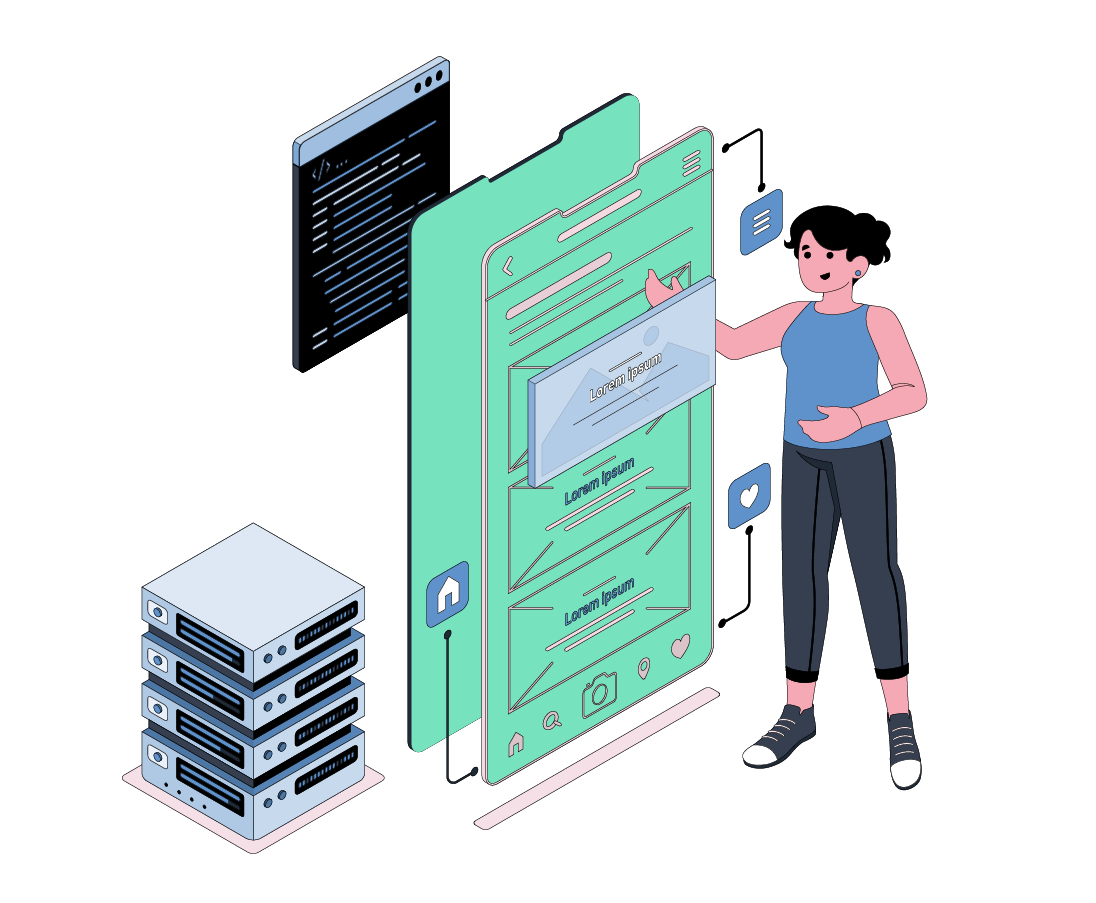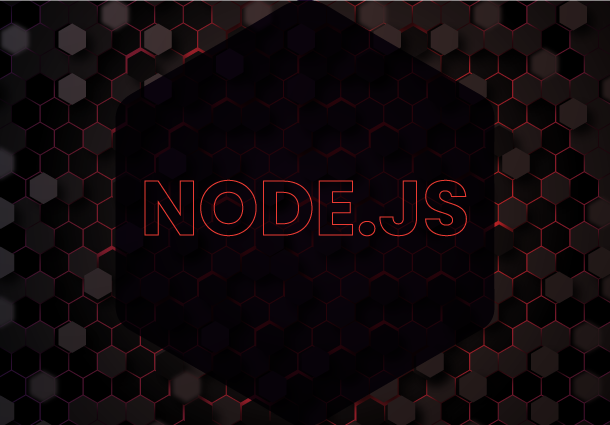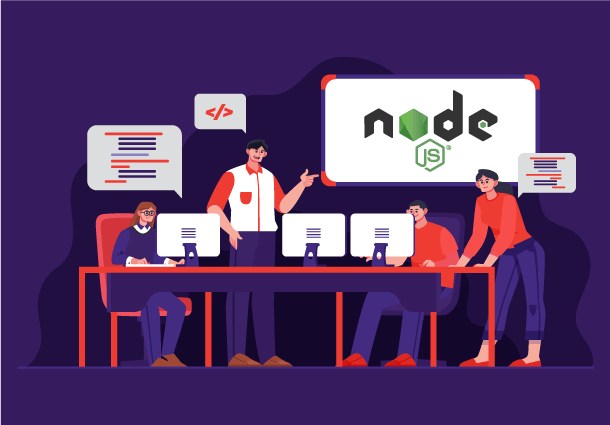Leap Forward in Motion: The Node.js Saga in Mobile Tech
Node.js has become a key technology in the rapidly expanding field of mobile application development, providing a wealth of frameworks that significantly improve the design of reliable and scalable applications. As we turn the corner, our goal is to present the top five Node.js mobile frameworks that have made creating mobile apps more simple. Express.js is renowned for both its elegance and practicality. Developing complex mobile applications is made easier with Meteor, a complete JavaScript framework. NestJS is an expandable Node.js framework that is consistent.  IBM’s extensible framework LoopBack makes it easier to create RESTful APIs for web and mobile applications. AdonisJS offers a feature-rich environment by prioritizing convention over configuration.
IBM’s extensible framework LoopBack makes it easier to create RESTful APIs for web and mobile applications. AdonisJS offers a feature-rich environment by prioritizing convention over configuration.
We also examine the cross-platform excellence of Node.js, clarify how it can function seamlessly between server and client logic, and highlight its advantages for mobile app development. Node.js’s real-world impact Example types from well-known Node.js mobile apps: LinkedIn, Uber, Walmart, Trello, Babylon Health, and Twitter. Mobile apps are changing the face of development and providing developers with a variety of tools to create fresh, useful Android applications. With the power this technology brings to the forefront, we learn a lot as we delve deeper into the complex domain of Node.js frameworks. Mobile apps are changing the face of development and providing developers with a variety of tools to create fresh, useful Android applications.
Top 5 Frameworks: Igniting Node.js Mobile App Excellence with Unique Development
Node.js provides a range of frameworks that facilitate the development of mobile apps and guarantee strong backend support. There are a multitude of features and functionalities offered by this Node.js framework to facilitate the creation of mobile applications, particularly for Android platforms. Let’s examine the top five Node.js frameworks for developing apps, particularly android development with Node.js.
Express.js: One of the most popular Node.js frameworks for creating mobile apps and websites is Express.js. It provides a remarkable infrastructure for scalable and adaptable APIs and is renowned for its compactness. Front-end technologies can be easily integrated with it due to its versatility and simplicity, which guarantees a seamless development process. Its middleware support, which facilitates smooth authentication and other processes, is highly appreciated by developers.
Meteor: A complete JavaScript framework called Meteor makes it easier to create mobile applications. JavaScript can be used for both frontend and backend development with Meteor, offering a consistent and unified development environment. Because it allows for real-time updates, it can be used with applications that need immediate data synchronization. Meteor is especially useful for developing Android apps since it makes creating cross-platform apps with a single codebase easier.
LoopBack: A highly extensible Node.js framework that simplifies the process of creating RESTful APIs for online and mobile applications. It offers strong tools for quickly building APIs and communicating with data sources. LoopBack offers a framework that makes it easier to create RESTful services, which aids in the development of Android apps on a Node.js basis. It is flexible for creating Node.js mobile apps since it can interface with various data sources, such as databases and external APIs.
NestJS: A continuous Node.js framework called NestJS was created to create server-side apps that are both Versatile and highly performant. NestJS is best suited for intricate mobile app projects because it is modular in design, uses TypeScript, and draws inspiration from Angular. It facilitates the creation of adaptable server-side applications and offers a strong foundation for the development of RESTful APIs. After creating Android apps with Node.js, Nest J is a great option because of its modular design and simplicity in testing.
AdonisJS: Convention-over-configuration is a Node.js framework with full functionality that is called AdonisJS. It offers sturdy components and tools for creating expandable maintenance programs. Since AdonisJS has features like ORM, authentication, and real-time synchronization, it’s especially well-suited for developing mobile applications. Because of its dedication to developer ergonomics and functionality, it’s a great option for Node.js Android app development.
There is always a Node.js framework to fit your needs for developing mobile applications, regardless of whether you want flexibility, full-stack development, modularity, or custom-driven development.
Node.js Goes Mobile: A Paradigm Shift in Cross-Platform Development
Node.js, which is based on the V8 JavaScript runtime, is well-known for its event-driven, non-blocking architecture. This innovative method enables programmers to design scalable and high-performing applications. Node.js provides a noticeable benefit in terms of mobile app development. Its server-side and client-side JavaScript compatibility streamlines the development process and creates a cohesive, effective workflow. A straightforward android app with Node.js backend is offered. Because Node.js is platform agnostic, developers can write server-side JavaScript code, which facilitates the integration of server and client logic. This improves consistency throughout the application and expedites development. Node.js facilitates the creation of integrated codebases by enabling front-end and back-end developers to share code, which eliminates duplication and promotes code reuse.  The true allure of Node.js is found in its ability to create mobile application APIs (Application Programming Interfaces) with ease. This is especially helpful for Android app development because Node.js makes it possible for programmers to quickly scale APIs to match the needs of mobile devices.
The true allure of Node.js is found in its ability to create mobile application APIs (Application Programming Interfaces) with ease. This is especially helpful for Android app development because Node.js makes it possible for programmers to quickly scale APIs to match the needs of mobile devices.
High performance is guaranteed by Node.js’s lightweight and event-driven design, which makes it perfect for object-oriented environments like mobile devices. Node.js also supports Express. js framework implementation, a minimal and adaptable framework that makes it easier to create incredible web and mobile applications When used in conjunction with Node.js, Express.js offers robust tools for creating APIs and handling HTTP requests, which makes npm (Node) a great option for creating Node.js android apps. Via the Package Manager, a sizable ecosystem of modules and packages is also accessible. Using the NPM ecosystem, this vast library of pre-built modules helps developers work more quickly by leveraging pre-existing solutions rather than having to start from scratch. This is especially beneficial for Node.js developers as it increases productivity.
Embarking on Innovation: Top-tier Mobile Apps Fueled by Node.js
A common example is LinkedIn, a professional networking platform that has seamlessly integrated Node.js into its mobile app design. With millions of users worldwide, LinkedIn relies on Node.js to handle concurrent communications efficiently, ensuring user experience that proceeds smoothly. Android development with Node.js provides real-time updates, messages, and sharing. Another notable Node.js mobile app is Uber. The ride-sharing giant has adopted Node.js to improve the functionality of its mobile applications, including the Android version. Node.js facilitates real-time communication between rider and driver, ensuring rapid updates on rider status, location, and fare statistics. Retail giant Walmart has adopted Node.js for its mobile app development. On the server side, an Android app supported by Node.js provides users with a seamless shopping experience.  Node.js enables Walmart to efficiently handle multiple simultaneous user sessions, ensuring customers can browse, purchase, and receive personalized recommendations without delay.
Node.js enables Walmart to efficiently handle multiple simultaneous user sessions, ensuring customers can browse, purchase, and receive personalized recommendations without delay.
Trello, a popular project management tool has also used the power of Node.js for its mobile app. The Android version of Trello relies on Node.js to enable real-time collaboration between team members. The non-blocking Node.js ensures that users can create new boards, add tasks, and receive instant notifications, and it improves the performance of groups that use the app to the top. Node.js has also found its way into the healthcare sector through applications such as Babylon Health. This android app with Node.js backend ensures that users can access medical information, book appointments, and even consult with healthcare professionals in real-time, due Node.js’ efficient handling of concurrent transactions. In the realm of social media, applications like Twitter have been using Node.js more than their mobile counterparts. On the server side, the Android app for Twitter backed by Node.js delivers real-time feeds, notifications, and instant updates.
Shaping the Future: Node.js and the Art of Mobile Marvels
In essence, Node.js’s lightweight design, event-driven approach, and support for frameworks make it an ideal choice for mobile app development, particularly for Android platforms. As the technology landscape continues to evolve, Node.js remains a key player in shaping the future of mobile app development. Whether developers seek flexibility, full-stack development, modularity, or custom-driven solutions, Node.js frameworks offer a solution to meet diverse needs in the ever-evolving world of mobile applications.
We are the top supplier of unique Node.js development services. For any project, we provide a skilled team of experts. Our Node.js solutions are customized to meet your specific needs, ensuring scalable and reliable applications. Pattem Digital is your go-to partner for successful backend development and seamless front-end technology integration. We offer high-quality Node.js solutions that help businesses succeed in the digital world.





